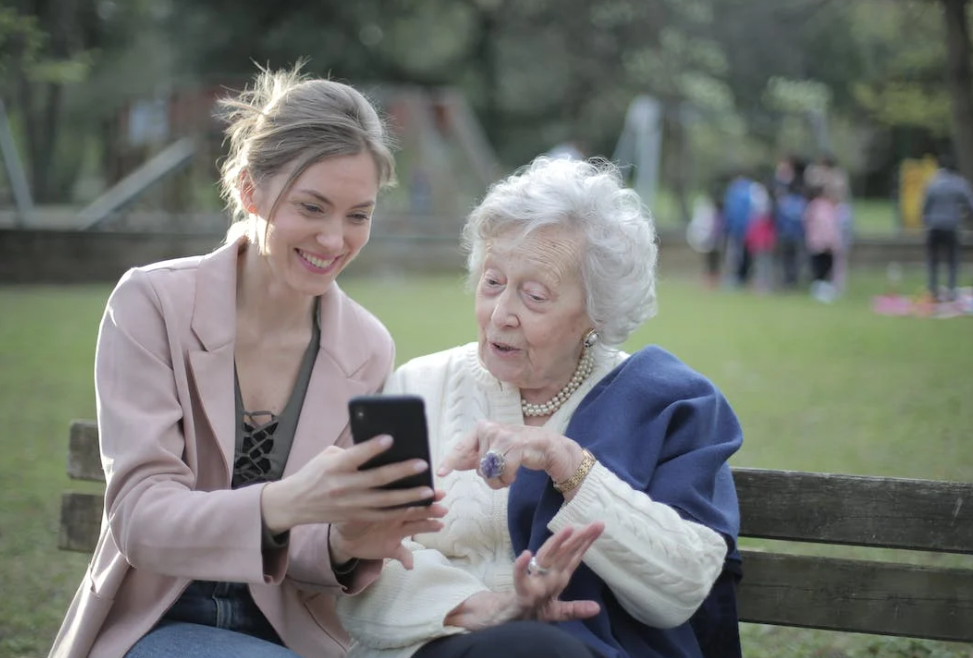Positivity Can Be Contagious
Let us look at how you can choose to change your attitude and become healthier, and how you can choose to be positively contagious.

Selfpause Affirmation App
Download the app to get 1,000’s of affirmation meditations and everything you need to write, record and listen to your own.
If you’re sick, your boss will probably tell you to stay home right? Because you risk having others catch what you have. Now, think instead of being contagious with a cold, you can be contagious with your attitude as well. You can either choose to come and bring a negative attitude that could affect others in a negative way, or you can choose to be positively contagious.
Positive Attitude

It’s true: a positive attitude is contagious. However, a negative attitude is contagious as well. In fact, the Center for Disease Control has a mathematical formula that predicts whether a person will become contagious to others. This is because a negative attitude drains energy from others around you.
People want to be around positive people. When someone is pleasant, they tend to be more generous and helpful to others. A positive attitude also helps a person get through tough times in life. It can even improve relationships. It’s easy to be positive, but it takes work to maintain it. Positive people inspire others, and this in turn creates a positive work environment.
Keeping a positive outlook can help your immune system, creative ability, and intelligence. Not to mention your wallet. A study from the Leisure World retirement community found that people with a positive attitude had a lower risk of developing heart disease, stroke, and other diseases. Those with a pessimistic attitude set standards that are unrealistic and ultimately lead to poorer health.
Another way to spread a positive attitude is to perform random acts of kindness. You can do this by picking up trash or offering help to those in need. By helping others, you will feel good about yourself and this will be contagious.
Positive Emotions

The idea that positive emotions can be contagious is not entirely unfounded. Studies have shown that people who share a common experience are more likely to pass it on to others. This concept applies to both physical and emotional contagion. Negative emotions are easier to pass on than positive ones because in the evolutionary past, being aware of negative emotions meant survival.
The research also shows that people who feel happy have more energy. This is because positive emotions can broaden the mind. People who are more positive are likely to be perceived as competent, cooperative, and collegial. Furthermore, those who spend time with happy people feel better, have more energy and have lower stress levels.
While the research on this phenomenon is relatively young, it does indicate that positive emotions can be contagious. Researchers have found that people who are positive about life tend to perform better than those who are not. Research has also shown that a person who is happy about himself or herself is more likely to be creative and more resilient. This can have a real impact on the world. When people are feeling good about themselves, they are more likely to produce better ideas, contribute more, and perform better in their jobs.
Researchers have linked positive psychological factors with better outcomes for infectious illnesses in Europeans and African Americans. However, it is not clear whether these effects are causal or merely coincidental. Regardless of its cause, these findings indicate that positive emotions are important for health.
Positive Body Language

Using positive body language when interacting with others can strengthen your relationships. It can also make those around you more open and receptive to your advice. Learn to read others’ body language and customize your body language to fit their mood. For example, if you are having an argument, you should not use sarcastic body language or be too tense. If your partner perceives this, it can damage your relationship.
Positive body language can also help build a positive team spirit in the workplace. When people feel appreciated and cared for, the job will become easier to complete. It can also help delegate responsibilities and resolve conflicts within the organization. You can also use positive body language to demonstrate interest and joy when attending meetings and establishing rapport.
Positive Thoughts
The power of positive thinking can be contagious. You can start by thinking positively about everything. After all, happy people are usually a lot happier and give thanks for everything in their lives.
Besides helping you feel better, positive thinking also can increase your chances of surviving sicknesses and diseases. Research has shown that positive thinking increases the immune system and may even help you ward off certain viruses. Additionally, studies show that people who are optimistic have improved heart health and reduced risk of cardiovascular disease. They also have more energy and are better able to cope with stressful situations.
It’s very important to share positive feelings with others, whether that’s through kind words or encouraging actions. Your attitude can influence others around you and change the course of their lives. Moreover, positive thoughts and attitudes are contagious and spread from one person to another. Try starting the day with a positive attitude and see how it affects the rest of your day.
In order to start implementing positive thinking, identify the areas in your life that need improvement. Write down negative words, and replace them with positive words. It will be easier to stay positive if you start with a single area. A few days a week will help you make the transition. And you can keep evaluating your thoughts to ensure that you are practicing the correct method.
There are many ways to spread positivity and happiness. One of the simplest is simply smiling at people. When you smile, it is your way of saying, “it’s going to be ok.” Many people don’t realize how powerful this is, so it’s good to practice this daily.
People who are positive tend to have a better experience in life. They are less likely to experience anxiety and depression and are better equipped to handle stress. They can find support from others and care for themselves. By spreading positivity, we can create an environment that supports self-love and care.
Our Top FAQ's
There is some scientific evidence to suggest that positivity can be infectious. For example, research has shown that people who are exposed to positive emotions and behavior tend to experience an increase in their own positive emotions and a decrease in negative emotions. In addition, positive emotions have been shown to be contagious in a number of different contexts, including online social networks, face-to-face interactions, and even through the simple act of smiling.
Positivity has been shown to affect the brain and behavior in a number of ways. For example, positive emotions have been linked to increased activation in the brain’s reward centers, which can lead to increased motivation and engagement in activities. Positive emotions have also been linked to increased creativity, problem-solving ability, and overall well-being.
An individual’s positive attitude and behavior can influence the positivity of those around them in several ways. For example, a person who consistently displays positive emotions and behaviors may serve as a role model for others, inspiring them to adopt similar behaviors. In addition, positive emotions and behavior can create a sense of social connectedness and support, which can in turn contribute to the overall positive atmosphere of a group or community.
It is possible for a person’s positivity to be contagious to those around them even when they are not physically present. For example, if someone shares a positive message or story online, it can be seen and potentially spread by others, leading to an increase in positivity in the virtual community. In addition, the effects of a person’s positive attitude and behavior can continue to be felt by those around them even after they are no longer physically present, as the positive memories and associations they leave behind can continue to influence others.
There are a number of ways that an individual can increase their own positivity and potentially spread it to others. Some strategies include: practicing gratitude, engaging in activities that bring joy and meaning, expressing positive emotions, and seeking out and surrounding oneself with positive influences. In addition, engaging in positive behaviors and actions, such as helping others or volunteering, can also contribute to an individual’s overall sense of well-being and positivity.
